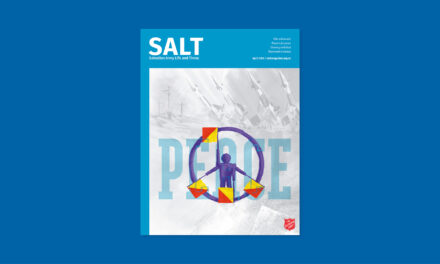
Bible-bots: Friend or Foe?

While Facebook took 10 months to reach 1 million users, and Instagram just 2.5 months, ChatGPT (a chatbot that generates original content when prompted) reached 1 million users in the first five days of its release. Just three months later (January 2023), ChatGPT had reached 100 million visitors to its site. And now BibleGPTs are coming online. In part two of our Artificial Intelligence (AI) series, Jules Badger explores what this could mean for the Church and, perhaps more importantly, our personal engagement with the Bible.
(Read Part 1: Everything has changed)
Many digital natives have never owned a hardcover Bible—they use a Bible app on their phone or other device. The term ‘digital natives’ refers not to a specific generation but to anyone who has used digital technology, computers and the internet from a young age. There are still plenty of people who can recall life before we transitioned into the digital age, and many people swapped out their hardcover Bible for an app years ago. That said, there are others who keep a firm grasp on their favourite, dog-eared, coffee-stained ‘real’ Bible. Which begs the question, has the digital age diminished the living Word of God in any way? Of course not! The digital revolution has not constrained God any more than the printing press did. In fact, what was once unimaginable, even feared, became a good gift of God. God is alive and well in both digital and analogue forms!
Unchartered waters
However, AI technology is next level—seriously. Why? Generative AI systems like ChatGPT (GPT stands for Generative Pre-trained Transformer) could completely alter engagement with the Bible. It remains to be seen if the results will be helpful or harmful, but this is unknown territory. In his July article titled ‘Robot “Church Fathers” Might Curate New Canons’, Adam Graber explains that there are already multiple tailor-made AI-driven chatbot systems being used for Bible engagement.
‘As a digital theology expert, I believe these kinds of “BibleGPTs” will continue to proliferate, and eventually become proprietary systems. And as this happens, the Church and its leaders will be prompted to make some momentous decisions about the Christian canon. This will, in turn, influence how we interpret the Bible and impact the future of our faith and practice.’
Readers may not be aware that BibleGPTs must first be fed data. But which denominational traditions should be included? Which theologies? What about hermeneutical tools? What about AI bias? Could this mean that mainstream Christian traditions might be over-represented and push important voices, like the Quakers, to the margins? What might a Salvation ArmyGPT look like? In a time when Salvationists hold divergent views on some key issues, who decides what’s included and excluded?
Safeguarding Scripture
But let’s not panic quite yet. Graber explains that ‘the systems and defaults we programme into BibleGPTs must be trained for the purposes of Scripture reading. Careless BibleGPTs can lose valuable insights and critical context in translation, but conscientious ones can deepen the significance and comprehension of Scripture for users.’
Graber goes on to suggest that the opportunity exists for innovative Christians to create BibleGPTs that will make our interaction with the Bible richer and deeper. But, he says, ‘this requires intentional effort—in our design as well as our doctrine, and in our strategy as much as in our theology’.
For the first time in history, we need to be praying and supporting those designers and strategists as much as if not more, than our theologians and scholars. However, Graber makes the point that ‘BibleGPTs will not rise to the intentions of the designers—it will fall to the habits of the users. For that reason,’ he says, ‘Christian AI designers must anticipate how users will engage with a BibleGPT.’
Interaction versus replacement
This is crucial, because Graber is concerned that BibleGPTs will provoke what he calls a ‘Google reflex’, where users instinctively search for answers to culture-bound questions before wrestling with the questions.
‘This Google mindset assumes that access to Scripture is the same as knowledge of Scripture,’ he states. ‘When used for Bible engagement, not replacement, BibleGPTs can assist us.’ But, he warns, ‘we must place BibleGPTs in the role of Bible supplement, never Bible substitute’.
Graber continues: ‘Pre-digested Bible content generated by GPTs isn’t a direct path to spiritual formation. There’s something important about reading the Bible itself—and for ourselves. Something in the way it draws us into the story and invites us to face the questions about who we really are. We must remember that the ultimate purpose of reading the Bible is to encounter God, to be transformed by that encounter, and to be equipped to participate in what it is doing in the Church and the world.’
So it matters not whether you use a hard cover Bible, an app, or both. What matters is to Whom—not what, we look for guidance. AI will never replace the still small voice of God.
Read more: tinyurl.com/ydjctc2z









